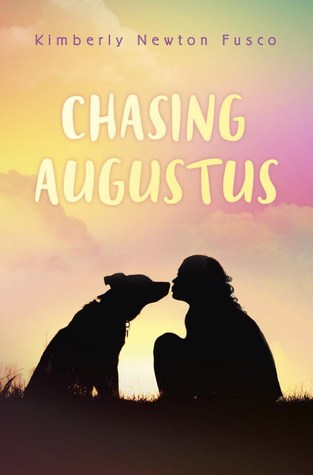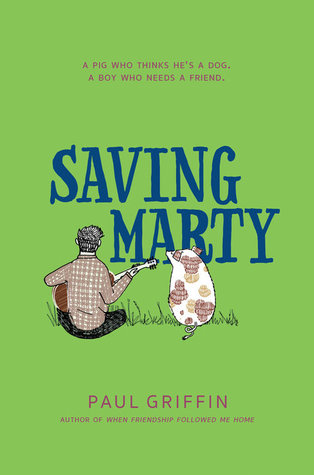
Blejwas, Emily. Once You Know This
September 19th 2017 by Delacorte Press
E ARC from Netgalley.com
Brittney's fifth grade teacher, Mr. McGinnis, likes to teach his students cultural things as well as the regular school topics, and he encourages them to keep notebooks of their dreams. It's hard for Brittney, because her family is struggling. Her father was a Polish student who disappeared when her mother became pregnant, and now she, her mother, and her younger brother Tommy live with her mother's grandmother. Jack, her mother's boyfriend, is frequently abusive to her mother, and the grandmother is sinking deeper and deeper into dementia and illness. There is rarely enough food to go around, and trips to the food pantry and WIC become more and more frequent. When a birthday card arrives for the grandmother from Alabama, signed "Fuzzy", Brittney manages to hunt down a great uncle who still lives near her grandmother's house. As Jack's behavior becomes more erratic and money becomes tighter, Brittney tries hard to come up with a "plan B" that will help her family survive.
Strengths: I liked that this gave some details about the social services that people who are struggling can access. Students who may need them may learn something useful, and students who don't need them might come to understand a bit more how difficult life can be for others. I liked that the mother had friends that stepped in when they could, and especially liked that Brittney knew to try to get help for her mother because of Jack's behavior. Mr. McGinnis was a sympathetic teacher who didn't pry too much.
Weaknesses: I wished that Brittney had been portrayed as older; she seemed too self aware for a fifth grader.
What I really think: I'm debating this one. It seems a bit slow as well as sad, so it will probably go on my list of books that I will buy if there is money left over. I wish I could buy everything, but where would I put that many books?

Yeh, Kat. The Way to Bea
September 19th 2017 by Little, Brown Books for Young Readers
Copy provided by the publisher
Bea is experiencing lots of changes as she goes into 7th grade. She and her best friend, S. aren't speaking after a summer of being apart, and Bea's mother is expecting. Bea feels alone and anxious, and writes haiku in invisible ink, hiding them in a wall, in order to try to cope with her feelings. When someone writes back to her, she is hopeful that her friend is willing to reconcile, but after a while, suspects that the writer may be someone else. There is an understanding librarian, Ms. Rodriguez, who gives Bea a space to decompress; the school literary magazine office. Another student, Will, seems to need to space to be dim and quiet even more than Bea does, and Bea is befriended by the quirky Briggs and Jaime as well. Will (who is not labeled as being on the Autism spectrum, although a note at the back of the book mentions Asperger Syndrome) is slightly obsessed with a labyrinth on a local estate, and Bea tries to get him access to it. Everything comes to a crisis when Bea's mother goes into labor and Bea must abandon Will just as he is set to go through the labyrinth. Luckily, her new friends help her, and she manages to reconnect with her older friends, as well.
Strengths: Definitely on trend with the current fascination middle grade authors have with students with anxiety issues. Bea's parents aren't dead, and while they are supportive, have their own interests that keep them from paying too much attention to Bea. It's good to see middle school students being allowed to work through their own problems. Briggs is a fantastic character (even if he wouldn't be allowed to wear the fedora at my school), and Will is accurately portrayed. The drama of friends distancing themselves is one that will speak to many tweens.
Weaknesses: I found it hard to believe that Bea wouldn't have returned Briggs' interest. The frequent discussions of poetry will not be intrigue my students.
What I really think: This is certainly more upbeat than this author's The Truth About Twinkie Pie, but ultimately a bit long, slow and quirky. I can see this getting a lot of attention from teachers and librarians, and can see it being used as a whole class novel on challenges.
 Fusco, Kimberly Newton. Chasing Augustus.
Fusco, Kimberly Newton. Chasing Augustus.September 19th 2017 by Alfred A. Knopf Books for Young
E ARC from Netgalley
Rosita (Rosie!) has had some challenges. Her mother moved to California when Rosie was a year old because she just couldn't be a mother. Rosie's father ran the local doughnut shop, but when he has a serious stroke, Rosie has to move in with her grandfather Harry. He's an irascible old coot who subsists on sardines and crackers, and doesn't want to be saddled with a grandchild. He and Rosie's mother have also given away Rosie's dog, Augustus. The dog, also known as Gloaty Gus, was smelly and ill-behaved, but Rosie loves him and makes every effort to find her dog. With the help of a neighbor boy, Phillipe, she manages to track down her dog after a lot of searching, finding him with an unlikely new owner. Can she convince Harry to bring the dog back home, and will Gus' presence make her life any better.
Strengths: Dogs are very important, and Rosie's longing for her dog is completely understandable. Readers who like sad stories will enjoy the gritty, horrible town and the difficult, somewhat unpleasant characters. Rosie's mother, in particular, is not a nice person.
Weaknesses: This was quirky and sad, but also rather slow moving.
What I really think: As much as I love my dog and understand the need that Rosie has to find hers, there were too many unpleasant characters in the book for me to really connect with any of them. Readers who want sad dog stories may still want to take a look at this.
 Griffin, Paul. Saving Marty
Griffin, Paul. Saving MartySeptember 19th 2017 by Dial Books for Young Readers
ARC provided by the publisher
Lorenzo Ventura lives on a peach farm, Maple Clutch, in southwest Pennsylvania with his mother and his grandfather, Double Pop. His father was killed while serving in the military, and the farm is not making a lot of money, so Lorenza mother is trying to cobble together loans, part time jobs, and business schemes to keep it afloat. After their pig has a litter, all of the animals are sold off, and when their dog, Bella, also has a litter, the plan is the same. However, one of the piglets got overlooked and gets adopted by Bella. Soon, Marty (named after Lorenzo's deceased father) thinks he is a dog. Lorenzo is fond of the animal and hopes he can keep him, even though his mother is constantly saying he has to go. Lorenzo's best friend, Paloma, gets involved in different schemes with Marty, such as entering him in a dog race to win money. As Marty gets bigger and bigger, he gets more and more destructive, but Lorenzo stills wants to keep him as a pet. When Paloma goes off to a music camp and secrets about his father's fate are revealed, Lorenzo is even more determined to keep Marty, since the pig is his only companion. Will he be able to save Marty?
Strengths: Marty does not die at the end of the book, which I was expecting. Griffin knows how to tug at the heart strings, and there are some clever and unusual elements in the setting and characters.
Weaknesses: This was very, very sad. The big secret (highlight for spoiler): Lorenzo's father committed suicide a week before Lorenzo was born. Why would you ever let a child find that out? Lorenzo was fine before finding that out. It was a bit odd that Lorenzo thought about his father so much, since he never met him. The mother's exasperation and wishy-washiness over the pig annoyed me. If she was having money problems, she should have worked with her father, come up with a plan, and moved on. Instead, it takes the pig nearly killing the grandfather before they arrange to get rid of it? Lots and lots of bad choices made by everyone in the book.
What I really think: Will pass on purchase.
No comments:
Post a Comment